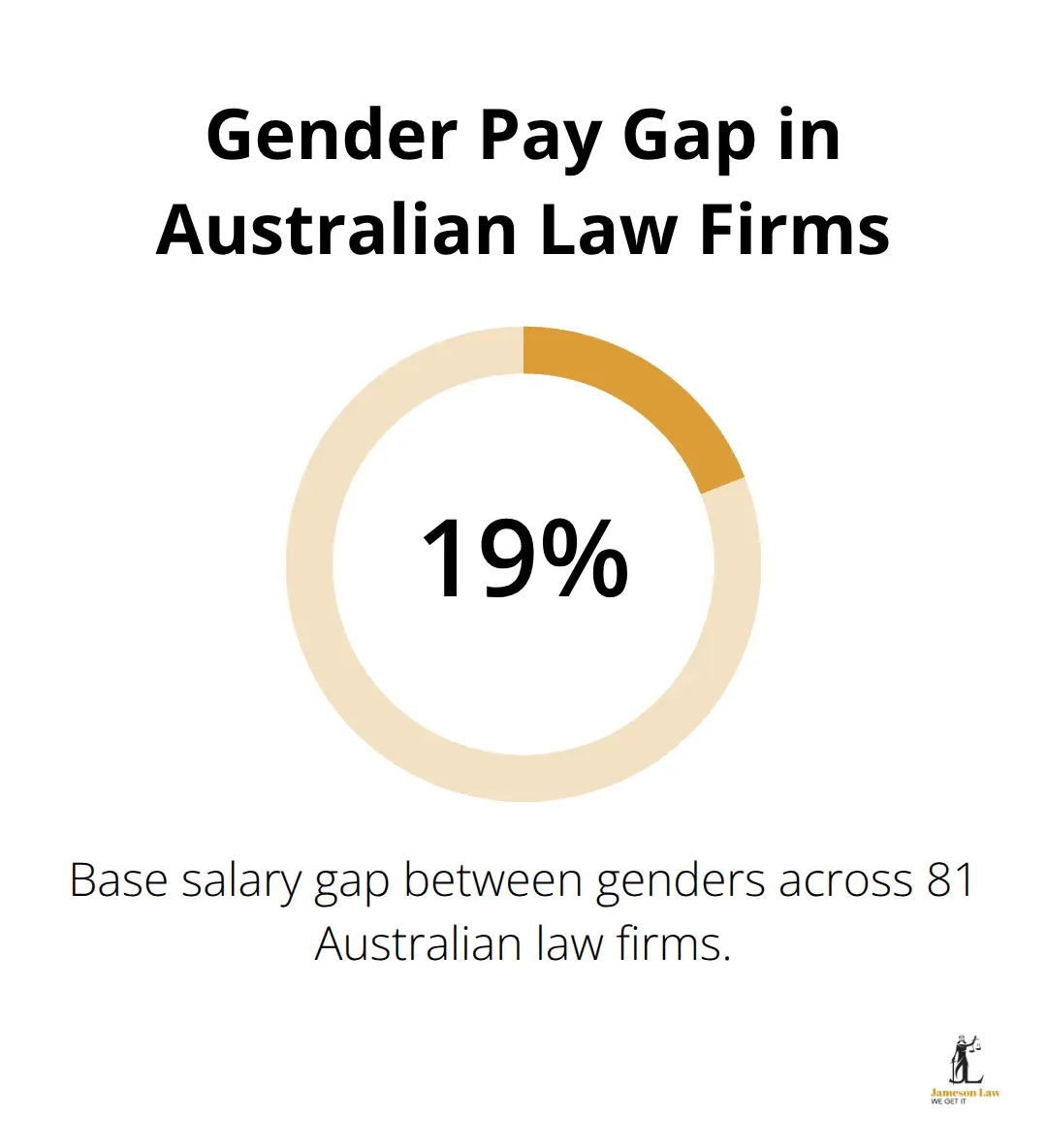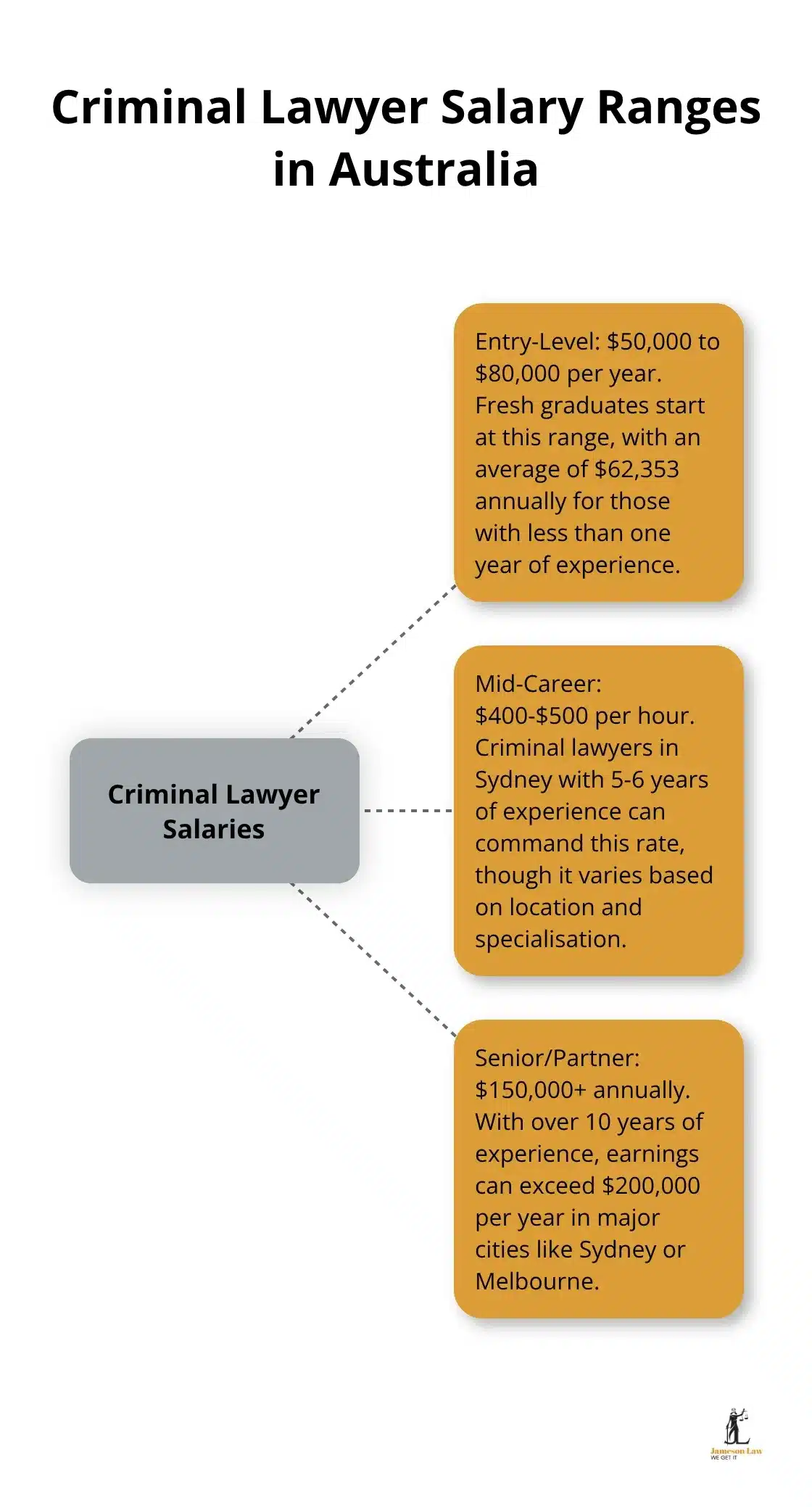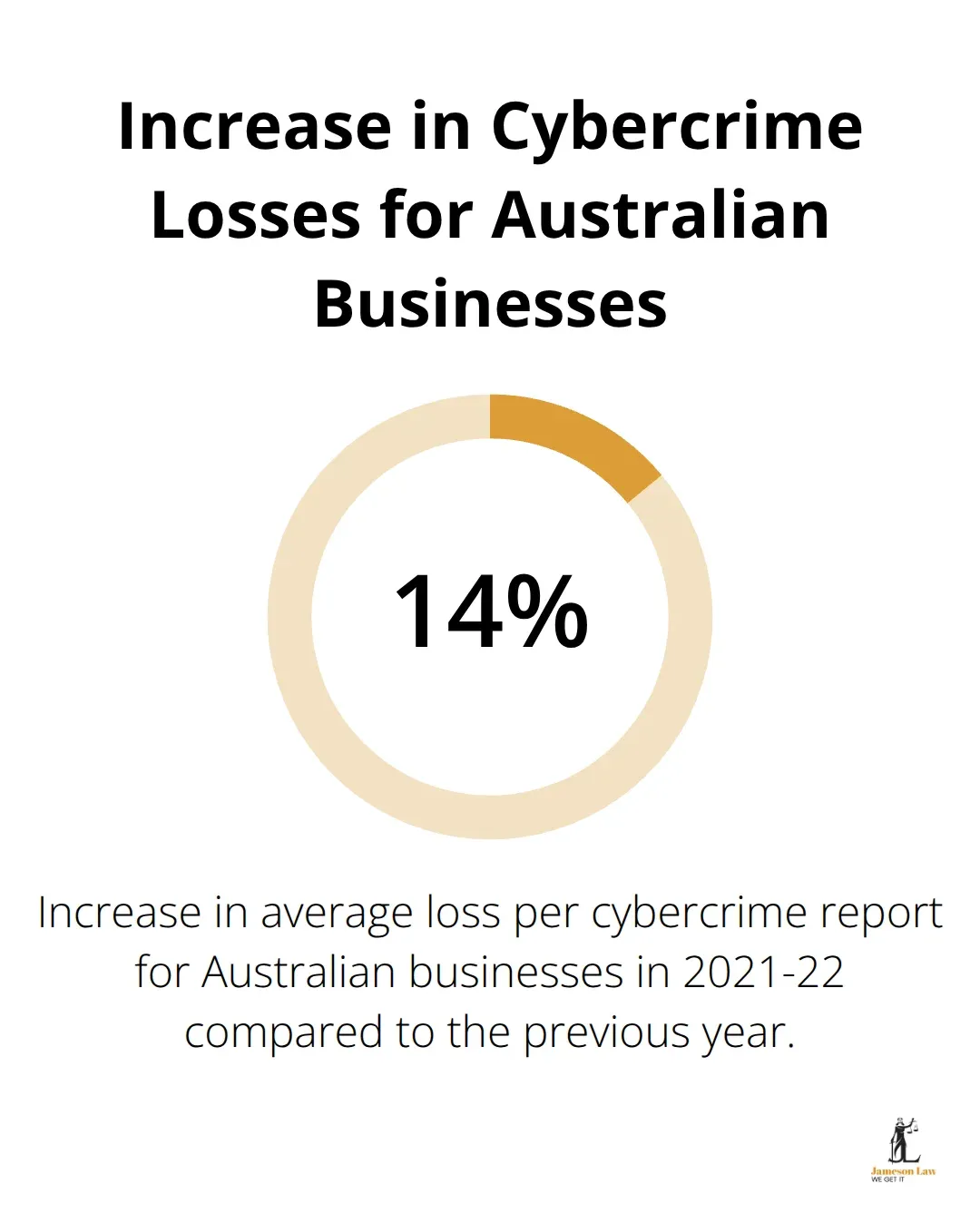At Jameson Law, we often field questions about criminal law salaries in Australia. The earning potential for criminal lawyers can vary significantly based on several key factors.
In this post, we will explore the average salary ranges for criminal lawyers at different career stages and discuss ways to boost your income in this field.
We will also examine how experience, location, and specialisation impact earnings in criminal law.
What Impacts Criminal Lawyer Salaries in Australia?
Criminal lawyer salaries in Australia depend on various factors. At Jameson Law, we have noticed that experience and expertise significantly influence earnings. New law graduates typically start with lower salaries, but as they win more cases and gain courtroom experience, their earning potential increases. For broad wage trends, see the ABS Wage Price Index.
Location and Firm Size: Key Salary Determinants
The geographic location of a criminal lawyer’s practice can substantially affect income. Major cities like Sydney and Melbourne often offer higher salaries due to the increased cost of living and a higher concentration of complex matters. You can compare typical ranges using independent sources such as the SEEK Salary Guide and LinkedIn Salary.
Firm size also plays a role. Larger firms with established reputations typically offer higher salaries and broader benefits. Boutique practices focused on criminal law can also provide competitive packages, especially where a solicitor has niche expertise.
Specialisation: A Path to Higher Earnings
Within criminal law, certain specialisations can lead to higher earnings. Areas such as cybercrime and white-collar and financial crime enforcement often involve complex briefs and high stakes. Lawyers who handle high-profile matters or build recognised expertise frequently command premium rates. For an overview of core work, see what criminal lawyers do.
Public vs Private Sector: A Significant Divide
The choice between public and private sector employment can dramatically impact salary. Public defenders and government prosecutors generally earn less than private practitioners, though public roles can offer stability and work-life balance. See the NSW ODPP careers page for guidance on government pathways.
Private practice can be more lucrative but requires building a client base and managing a practice. Transparent fee structures and consistent outcomes help drive higher earnings over time.
It is also important to acknowledge the gender pay gap in the profession. Recent reporting from the Workplace Gender Equality Agency shows persistent disparities across many sectors, including legal. Addressing equity remains a priority for the industry.

The passion for justice and the desire to make a difference in people’s lives are equally important to a successful criminal law career. These principles, combined with expertise across key practice areas, allow criminal lawyers to provide top-tier service while building a rewarding career.
Now that we have explored the factors that impact criminal lawyer salaries in Australia, let’s look at the average salary ranges for criminal lawyers at different career stages.
What Do Criminal Lawyers Earn in Australia?
At Jameson Law, we value salary transparency. Below is a general breakdown of earnings for criminal lawyers in Australia at different career stages, supported by market guides such as Hays and Michael Page.
Entry-Level Criminal Lawyer Salaries
Graduates entering criminal law commonly start between $50,000 and $80,000 per year, depending on location and role. Some salary trackers report averages around the low $60,000s for new criminal defence solicitors. See current snapshots on Indeed Salaries and Talent.com.
Mid-Career Criminal Lawyer Salaries
With 5–6 years of experience, Sydney criminal lawyers may transition into higher hourly rates and larger briefs. Market guides indicate common billing rates in the several hundreds per hour depending on expertise and firm type. Cross-check with the Hays Salary Guide and SEEK Salary Guide.
Senior Criminal Lawyer and Partner Salaries
Senior criminal lawyers and partners can exceed $150,000 annually, with top-tier earners in major cities sometimes surpassing $200,000 per year. Remuneration varies with case complexity, reputation, and client base. For broader remuneration context, review APS Remuneration (public sector benchmarks) and private-sector salary centres such as Michael Page Legal.

Comparing Criminal Law to Other Legal Specialisations
Average earnings in corporate or commercial roles can be higher than in criminal practice. Public salary snapshots for in-house and corporate roles are available on Talent.com, Glassdoor, and the Hays Salary Guide. Financial outcomes are just one factor. Many solicitors prioritise advocacy, justice, and meaningful client impact.
Increasing Earnings in Criminal Law
Criminal lawyers can increase earnings by specialising in high-demand areas such as cybercrime or financial crime. Additionally, building a strong reputation and client base often leads to higher fees and more complex briefs over time.
The next section outlines practical strategies solicitors can use to boost earnings and progress their careers in this challenging yet rewarding field.
How Criminal Lawyers Can Boost Their Earnings
At Jameson Law, we have observed how targeted career moves and skills development translate into improved remuneration. The strategies below are commonly effective.
Develop a Niche Expertise
Specialisation can set you apart and justify higher fees. ACSC reporting shows rising cybercrime impacts on Australian organisations, which supports demand for cyber-related criminal expertise.

White-collar matters also require detailed investigation and preparation. Familiarity with ASIC enforcement priorities and AFP financial crime frameworks helps position your practice.
Invest in Continuous Learning
Staying ahead of legal developments is essential. The Law Society of NSW CPD scheme requires ongoing education. Additional qualifications, such as an LLM with a criminal focus, or specialist training in forensic evidence and cross-examination, can support higher fee structures.
Master the Art of Negotiation
Effective negotiation benefits clients and strengthens your professional brand. Consider structured training and apply proven techniques in plea discussions and case management. Good outcomes build referrals and justify premium pricing.
Build a Strong Online Presence
A professional website and active profiles help clients find you. Publish plain-English explainer content and case insights to demonstrate expertise. For example, contribute guides on criminal procedure, bail applications, appeals, and sentencing advocacy. Also be clear about fees and options such as fixed-fee stages. For general pay and minimums, see the Fair Work Ombudsman.
Final Thoughts
Criminal law salaries in Australia vary with experience, location, and specialisation. Entry-level solicitors often earn between $50,000 and $80,000 per year, while top-tier practitioners in major cities can exceed $200,000. Specialising in high-demand areas, building a strong client base, and consistent professional development all support higher earnings.
A career in criminal law offers rewards beyond income. The satisfaction of defending rights and upholding justice motivates many in this field. Continuous learning, refined negotiation skills, and a credible online presence contribute to career growth and better remuneration.
If you are considering criminal law or looking to progress your career, weigh both financial and intrinsic rewards. At Jameson Law, we provide expert criminal defence services and share insights that reflect the realities of practice. For confidential legal help, call (02) 8806 0866 or visit our contact page.













